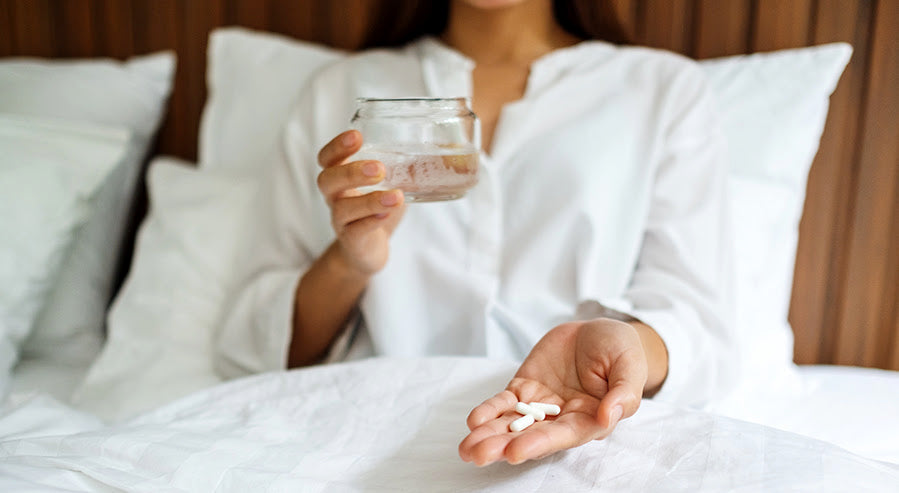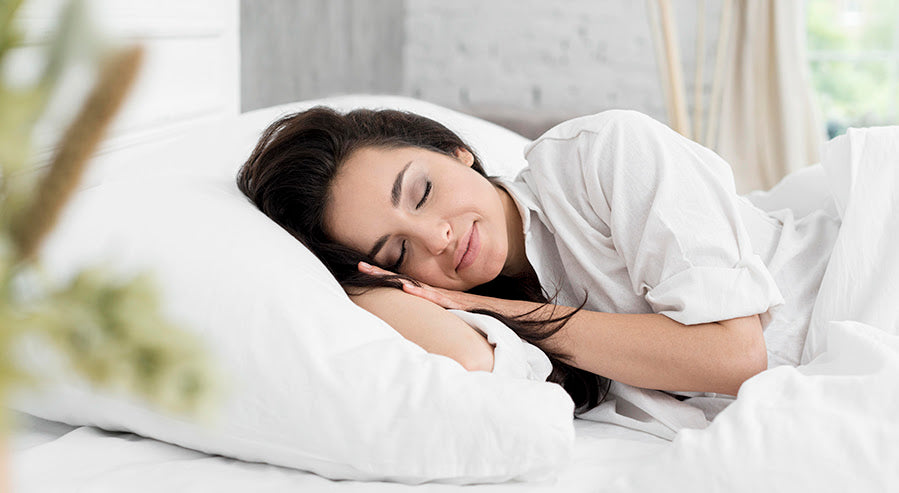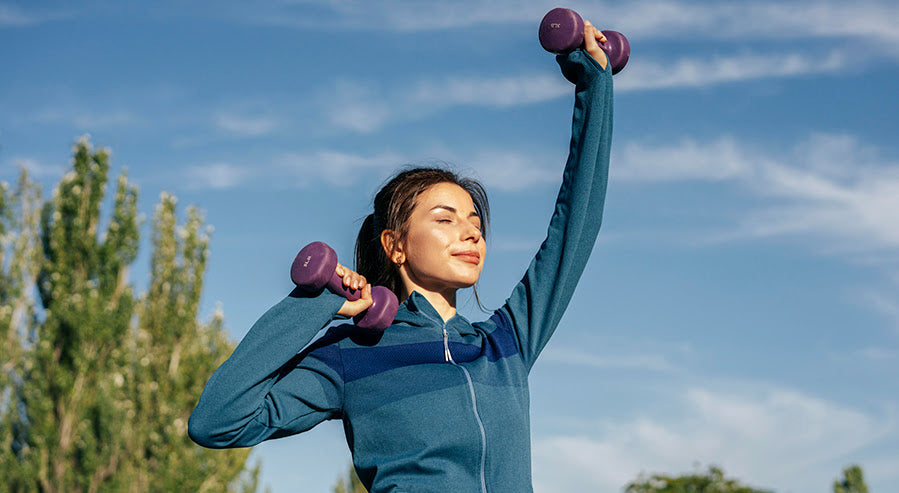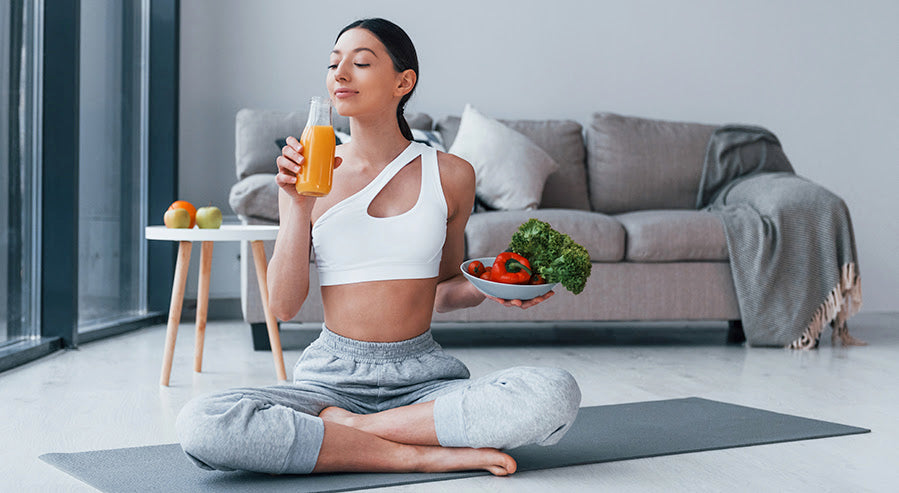Are you constantly living in an energy deficit, fatigued throughout the day, and unable to procure quality sleep at night? This guide was built to tackle these common struggles.
The solutions often lie in minor lifestyle modifications, overlooked supplements, and commonly neglected parts of our diets. This guide will illuminate these factors, leading you on a path toward a life enriched with balanced energy and restful sleep.
By the end of this article, you'll possess the knowledge to manage your energy levels and improve your sleep quality. Let's study these practical tips and strategies now.
Supplements to Alleviate Fatigue
Ashwagandha works wonders in managing stress and reducing fatigue, But watch out! You might lose sleep and get headaches or tummy issues if you jump the gun.
Then we have Rhodiola Rosea. This little ramps up your resistance to stress, boosts your energy, and sharpens your thinking. But does it have some kickbacks? Yup, you might get nervous or lose sleep if you take too much.
Ever heard that Vitamin B12 plays an important part in making the red blood cells that carry oxygen and wake you up? Slacking on B12 might make you feel like a sluggish snail. Where to find it, you ask? Meat, fish, and dairy are your top choices. But - and this is a big but - drinking too much might leave you dizzy, nervous, or with a thumping heart.
Did you know iron also helps make those oxygen-carrying cells we talked about? It's incredible, especially when it comes to shaking off fatigue. You can load up on it from sources like meat, fish, tofu, and green veggies. But don't overdo it! Too much could end in an upset stomach, feeling sick, or tummy pain.

Have you heard of Coenzyme Q10, also known as CoQ10? Found in tasty things like meat, fish, and whole grains, it helps your cells make energy. Sounds good, right? Just watch out for the speed bumps of skin pokes, feeling sick, or uppity tummy issues.
And then there's Creatine, the darling of athletes! It speeds up how fast your body restocks energy. Meat and fish are top sources. But too much might leave you with a crampy stomach.
Vitamin C is really important and is available in citrus fruits, berries, and green veggies. It supercharges your immune system and helps your body absorb iron, meaning more energy. Overboard alerts, though, start with looseness in the guts and tummy cramps.
Want some Magnesium? It's a top factor in the energy production team. You'll find plenty in whole grains, nuts, and legumes. Be careful not to gorge, though - overloading might begin with feeling sick, running to the toilet, and cramping.
Vitamin D, the sunshine vitamin, boosts your sleep quality and powers up your energy. Find it in fatty fish and egg yolks. Just bear in mind: it's too low, and you're fatigued, too high, and it's aches, pains, or even kidney troubles.
So, the golden rule here? A little goes a long way. Better to keep it low and slow with these nutrients - that's the secret to unbeatable energy and great health!
Guiding Through Supplements for Adapting Better Sleep
Melatonin - an inborn hormone - is the boss of your sleep cycle. You can perk up your sleep habits if you add a little extra melatonin, which is pretty neat for those dealing with jet lag or graveyard shifts. Cherries, oats, and sweet corn are your favorite foods for it, but you can always choose melatonin in a pill form, too.
Lavender has a knack for improving sleep quality, which lots of studies have backed up. It cools down your nervous system, paving the road to peaceful sleep. Lavender can be found in things like really important oils, teas, and bath products.
Passionflower is a big-time promoter of sleep. People typically drink it as tea or swallow it as a supplement. When you have it, your brain gets a boost of GABA, a chemical that's in calmness and sleep.
The oldie but goodie plant, Ginkgo Biloba, has your back if stress or anxiety is messing up your sleep. Found naturally in nuts and leaves, you can also take it as a supplement. But it's a slow worker, so you have to keep at it.
Next up is L-Theanine, an amino acid in green tea, which boosts your brain's calm-inducing chemicals and turns down the excitable ones. Supplements give you a better dose than the tea itself.

Here's another fun one - Tryptophan. A really important amino acid, it helps with serotonin production, which is in charge of mood and sleep. You find it in dairy foods, eggs, and poultry, and it's pretty great for sleep, especially when you take it as a supplement.
So, how well these supplements work depends on your biology and lifestyle. They're at their best when they're part of a solid sleep strategy that includes good food, exercise, stress management, and clean sleep habits.
Let's switch gears for a second - here comes Green Tea. People around the globe love it, and I'm talking about it because it tastes good. It has a whole bunch of health benefits. Packed with catechins, it squashes free radicals to improve your health. Also, its caffeine and L-theanine help beat tiredness, keeping you alert and energetic.
To wrap it all up, Ginseng has been used as a medicinal powerhouse for ages, and it's pretty great for boosting energy. According to some studies, Ginseng can help fight fatigue - especially for cancer patients - and help your body handle stress better.
The bottom line is that these herbal supplements are powerhouses for your energy levels. Green Tea has antioxidants and a decent amount of caffeine, so you stay alert without any jitters. Ginseng, on the flip side, gives you a steady increase of energy and helps you manage stress effectively. Adding these supplements to your daily schedule can really help with fatigue and sleep problems. So, when you're feeling zapped, why not reach for Green Tea or a Ginseng supplement?
Achieving Good Sleep with Lifestyle Measures
First things first, I'd start with cutting back on the caffeine you have every day, especially later in the day. That thing can mess with your sleep; keep track of how much you're drinking and settle on a time to stop in the afternoon.
Next, try sticking to a regular sleep schedule. Just like managing your caffeine, having a set time to wake up and go to bed can really help you out. It makes sure your body's inner clock is in sync, which can do wonders for your sleep.
You also want to make sure your sleeping conditions are just right - not too bright, too loud, or too hot. Are you comfortable in your bed? Those small changes can have a big change on how well you sleep; they can really make or break it.

Here's something I like to do - start a relaxing schedule before going to bed. This could be reading, meditating, or even a warm bath. Try staying away from your electronics, though, as they give off blue light that messes up your sleep hormone, melatonin.
Putting all these tips into action, you'll see improvements in your sleep in no time, and you won't even need any sleep supplements! Besides, why would you want them when you could have natural, sound sleep? These simple changes can help you fall asleep faster, sleep better, and feel more refreshed when you wake up. After all, isn't the quality of your sleep really up to you?
The Part of a Balanced Diet
Living a unique life majorly depends on the food you choose. The important ingredient here is a different diet; it can boost your energy and overall health and keep unwanted problems away, like the negative change of taking too many supplements. A balanced meal plan, in my view, should always include whole foods, fruits, vegetables, lean proteins, and whole grains.
Think of whole foods like veggies, grains, fruits, nuts, seeds, and legumes as your really important power source. These power-packed items are what help your body work. It's a good idea, if you ask me, to mix different foods into every meal - broccoli, sweet potatoes, red bell peppers, and kale, for example, to give you unique must-have nutrients for your health.
Fruits are, without a doubt, fiber and vitamin powerhouses. And wouldn't you think they give you natural sugars, which perk you up faster than fake sugars? Get your fill of sweetness with fruits like berries, citrus fruits, bananas, and apples - they'll give you the energy top-up you need and curb sugar cravings effectively.

Lean proteins - think poultry, seafood, and tofu - act as the body's building blocks. They help fix cells and boost your immune system. Foods that have a ton of protein and are loaded with amino acids are absolutely energy-valuable - helping you fight fatigue and stay sharp.
Putting whole grains into your diet - like brown rice, oatmeal, and quinoa - balances your diet and spreads out your energy. These grains take a while to digest, which means your energy stays consistent all day long. Also, their fiber content helps take care of any gut problems that might make you tired.
Just think about this for a moment: Have you ever considered how big of a change a balanced diet could make to your energy and health levels? It's easy to see that choosing a different diet could be a simple and natural way of beating fatigue and getting better sleep.
The Relationship Between Exercise and Energy Levels
Hey there, did you know being active gets your energy levels up and helps you sleep better? Lots of studies have pointed out how moving around more can make you feel more energetic. Take this 2008 study from the University of Georgia, for example. It showed that people who don't move around much and feel tired all the time can cut their fatigue by sixty-five percent and boost their energy by a fifth if they just get some regular low-key exercise.
Now that's pretty cool, right? Exercise helps keep your heart and lungs in shape, and that helps get the blood moving around your body. That's important to feeling more energetic. I believe that really drives home the point of why it's super important to make physical activity part of our daily lives.
Just as impressive is how physical activity can lead to sleeping better. A study led by the sleep experts at the National Sleep Foundation showed that those who exercise regularly sleep better. The way your body recuperates after a workout leads to longer, deeper periods of sleep.

Surprisingly, regular exercise also helps reset our "body clock." It has a lot to do with how physical activity affects body temperature, which plays an important part in when we feel sleepy or wakeful.
And you know what else exercise does? It helps ease symptoms of anxiety and depression, which often mess with our sleep. When we work out, our body produces "feel-good" hormones called endorphins. These can help combat mood swings and sleep issues.
So, if you're dealing with fatigue or having trouble sleeping, getting into a regular exercise schedule might just be difficult. It can give you the energy you need and help you enjoy deep, restful sleep. The science backs it up, and I'm here telling you that getting fit might just be what sets you on the path to a more refreshed body and mind. So, do you see now why staying active is so important?
Can Stress Management Techniques Improve Sleep Quality?
Talking about how to handle stress can make your sleep better with lots of different techniques you should think about. How about trying guided meditation, yoga, or, frankly, just some simple deep breaths? Using these tricks makes it easier to get into a better sleep schedule. Bring these tools into your life, and you'll find a relaxing place of mind - that's what you need for a good snooze, right? Also, it'll help you handle how much energy you have. Think of the perk of sleeping well and handling your energy like a pro.

Managing your sleep takes some thought; there are many strategies that can help. Ever heard of sleep helps, changing your lifestyle, or sticking to a healthy diet? They might be just what you need to keep sleep problems and tiredness at a distance. Bring these strategies into your daily schedule, and you'll feel your energy balance out - you'll be a guaranteed good sleeper. So why don't we make this our main plan from now on?
As you get started on your path to wellness, take a look at what we at Teami can do for you. We have all kinds of natural teas full of good things that can make you sleep better and feel healthier overall. Whether you're looking to lose some weight, pump up your immune system, or give your skin a boost, we have you covered. Get started by taking a spin around our store today, and you can find the option that fits you like a glove. Here's hoping for better sleep and exciting times ahead. After all, isn't that our shared goal?